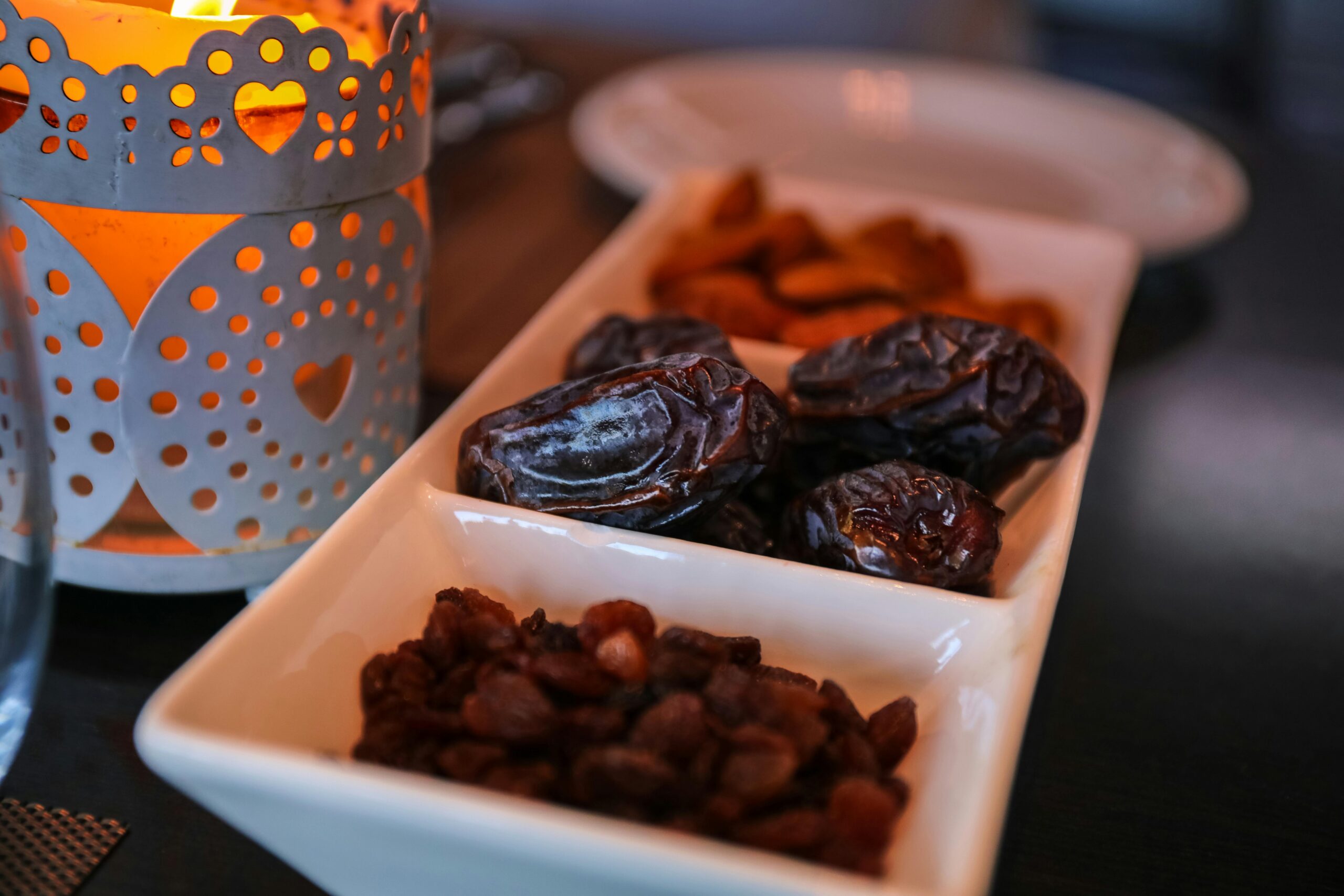With Ramadan less than a week away, now, if you haven’t already, is the time to start preparing. For those who don’t know, Ramadan is the Muslim holy month where Muslims (who are able) fast, or abstain from food and drinks, from sunrise to sunset; yes, before you ask, even water.
As college students, most of us will be spending this Ramadan away from home and family. It is a very different experience than past Ramadan’s where you are constantly surrounded by loved ones. Despite the changes that come with aging, here are a few tips to help you make the most of this blessed month.
Find a community
Spending Ramadan by yourself is sometimes difficult and creates the perfect recipe for sadness. This year, find a community within the University of California, Riverside (UCR) campus or even just the Riverside community. Attend a UCR Muslim Students Association (MSA) event; they often host iftars during Ramadan for anyone looking for a meal to break their fast while on campus. To stay up to date with UCR MSA events, follow them on Instagram @msaucr.
As UCR students, we are very lucky to have a masjid right next door to campus. The Islamic Center of Riverside (ICR), located right next door to the UCR Plaza apartments, is the perfect place to find a community this Ramadan. Attend as many Tarweeh prayers as possible, and when the Masjid is hosting an iftar, try your best to be there. Ramadan is a month of devotion to your deen and growing closer to Allah (God), so try your best to go to the masjid as much as possible.
Eat Suhoor
Suhoor, the pre-dawn meal eaten before fasting, is an essential part of a successful day during Ramadan as a college student. I know it is very hard to wake up well before Fajr to make yourself a meal, but eating suhoor will give you the capacity to make the most of your time and give you the proper nutrition to be functional throughout the day. Whether the suhoor is as simple as some fruits, dates and water or a whole meal, try your best to eat something before fasting time so your body is fueled and ready for the day.
To make your mornings a little easier, have some cut-up fruits and nuts on hand for a quick suhoor that you can pop in your mouth 10 minutes before Fajr. Or, if you are looking for something a little more filling, try meal prepping suhoor; for ideas on suhoor meal preps look to the end of this article for a suhoor meal prep recipe. Most importantly, make sure to drink water; staying hydrated in Ramadan is key, so chug as much water as you can before Fajr so hopefully you won’t be super thirsty throughout the day.
Plan your days and create a Ramadan routine
This year, Ramadan is set to begin the evening of March 10, during week 10 and finals week this quarter. Prioritizing your deen during exam season is very hard, especially when the amount of work you have to do outnumbers the number of available hours in a day. Because of how busy exams can get, it is important to plan your days accordingly and create a Ramadan routine contingent on your own lifestyle.
Make sure that alongside the mountains of studying and paper writing occurring during the last two weeks of the quarter, you are also prioritizing your deen during this blessed month. It is necessary to find the right balance to ensure you are not falling behind in classes but you are also making the most of your Ramadan. This month is very short and, before you know it, it’ll be over so try your best to schedule your days around salah (prayer) and make time to read the Quran and grow closer to your religion and in your relationship with Allah (God).
Meal prep your iftar
Iftar is the meal typically consumed by Muslims to break their fast following Maghrib (sunset) prayer. If you know you have class till 7 p.m. every Monday and Wednesday, or you know you will not have enough time to make a meal before Maghrib, make sure you are packing yourself something to break your fast with. This could be something as simple as some dates and water, or as extravagant as a whole meal for you to enjoy on campus. Try meal prepping iftars so you have time to eat before heading to the masjid. For a quick and easy iftar meal that will last you all week, check out one of our recipe articles entitled “Ramadan Recipes: Vegetarian Moroccan Harira.”
Get your work done before iftar
We have all said it before, “Oh I’ll get my work done after iftar,” and we are all liars for that. Never not once has any of us ever studied or done homework after iftar. It is simply not happening; you know it, I know it, so let’s all just stop pretending and try our best to get homework done before iftar time. Now that you can’t eat during the day, you should have more time for homework anyway.
Night time during Ramadan often is very busy, so let’s not waste the few hours between Maghrib and Fajr on homework. Schedule your life properly and dedicate your evenings to praying Taraweeh at the masjid and going to Quiyams when possible. Nights are not the time for that essay you put off for months; try your best to get as much of your homework done during the day so you can make the most of your nights.
Ramadan Kareem everyone, hopefully these tips will help you maximize your time during this blessed month!
Suhoor meal prep recipes:
Overnight oats:
Prep time: 5 minutes
Serving size: one; make as many as you want for meal prep!
Ingredients:
½ cup of rolled oats
½ cup of any milk of your choice
2 tablespoons of greek yogurt
1 tablespoons of chia seeds
2-3 tablespoons of maple syrup, honey, or any sweetener of your choice
Toppings can be whatever your heart desires, here are some options to inspire you:
- Sliced strawberries
- Slices banana
- Berries
- Nuts (almonds, cashews, pecans, pistachios)
- Peanut butter
- Cinnamon
- Dates
- Literally, anything else you want
Directions:
In a jar, add oats, chia seeds, some greek yogurt and your sweetener of choice. Afterward, add any toppings to the oat mixture that your heart desires and top it all off with your milk of choice. Mix well, add some more toppings to the top (if your heart desires) and store in the fridge to be consumed for suhoors to come.
Egg bites:
Prep time: 10 minutes
Serving size: 12 servings (1 serving per egg used)
Ingredients:
12 eggs
1 to 1½ cups of cottage cheese (depending on how creamy you like)
1½ cups of any shredded cheese your heart compels you toward
Seasonings to taste (paprika, salt, pepper, garlic powder. etc.)
Toppings can be whatever your heart desires, here are some options to inspire you:
- Feta cheese
- Tomatoes
- Mushrooms
- Spinach
- Onions
- Sausage
Directions:
Start by prepping all of your toppings. If you are using fresh vegetables, make sure to cook them before adding them to the egg bits, and drain all the liquid from the vegetables to ensure the egg bites don’t get soggy.
In a blender (or bowl) combine the eggs, cottage cheese, shredded cheese and seasoning to taste. Blend until smooth.
Pour the egg mixture into muffin trays (preferably silicon so it is easier to remove) about ¾ of the way to the top and add toppings of your choice over top of the egg. Feel free to be as creative as you want here, and try making different variations of the egg bites so you do not get bored of the same egg flavors.
Preheat your oven to 325 degrees and bake the egg bites in a water bath for about 30-35 minutes. Allow them to cool, and store in the fridge or freezer for up to five days.
Reheat the egg bites in the microwave for the perfect quick and easy suhoor. Feel free to top the cooked egg bites with any extra toppings or sauces you have lying around.









